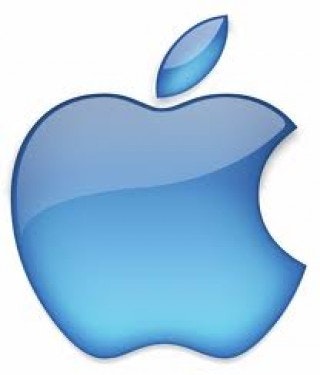Samsung shares slipped 6% on Friday. An analyst at JPMorgan noted that demand for the company’s flagship phone, the Galaxy S4, appears to have dropped dramatically.
Compared to its predecessor, the Galaxy S4 had a fairly robust launch. But now, sales appear to be slowing. Apple Inc. (NASDAQ:AAPL) saw a similar phenomenon play out last fall, when analysts raised concerns that the company’s iPhone 5 was failing to sell as well as expected.
This seems to suggest that the high-end smartphone market has been saturated, and that incremental upgrades will fail to drive sales. That should concern investors in any company that’s particularly exposed to the market.
The high-end smartphone market has been saturated
The smartphone market has seen very little innovation since June 2010. That month marked the release of the iPhone 4 — a phone that’s still sold today, and one that’s quite capable.
Phones have gotten a little bigger, a little faster. Cameras are slightly better quality. And 4G is available for those with carriers that offer it in their area.
But for the most part, innovation has stalled. US smartphone penetration passed 50% last October. Going forward, the rate of adoption may be expected to slow, and will likely never reach 100% — there is a segment of the population (some seniors, for example) that has no interest in smartphones.
At this point, those who have not upgraded to a smartphone have likely done so for reasons of cost — without carrier subsidy, high-end smartphones can run at $700 plus. This is particularly problematic for consumers in the developing world.
Older phones should eventually filter down to these budget consumers, and there’s even talk that Apple Inc. (NASDAQ:AAPL) could unveil a cheap iPhone. But at the low-end of the market, the profit margins aren’t nearly as great. In fact, Samsung’s budget smartphones may be sold with a margin of only 1%.
Apple’s exposure to the smartphone market
Apple Inc. (NASDAQ:AAPL) has a number of different products — Macs, Macbooks, iPads, etc.
But when you actually take a look at the company’s financials, one product completely dwarfs the rest. As of the company’s last 10K filing, the iPhone accounts for more than half of the company’s revenue, and the vast majority of its profit.
Moreover, it’s been the biggest driver of Apple’s growth. From 2011 to 2012, iPhone revenue grew 71%, much more than any other segment.
To be fair, on a comparative basis, the iPad dwarfs Apple Inc. (NASDAQ:AAPL)’s other products in terms of revenue, and Apple’s management continues to talk-up the iPad as the real future of the company (Tim Cook called tablets the mother of all markets in February, and hinted that they could one day replace many other types of computers.)
But for now at least, Apple Inc. (NASDAQ:AAPL) is very much an iPhone company.
Motorola’s moonshot bets
Google Inc (NASDAQ:GOOG)
acquired Motorola in 2011, and at the time, the search giant claimed it was strictly a patent play. But now, it appears there might be more to it.
Motorola is expected to launch its long-anticipated Moto X phone this fall. Without seeing it in action, it’s hard to judge how revolutionary the device will be. That said, based on features hinted at the D11 conference, it could bring a level of innovation to smartphones that hasn’t been seen in years.
The Moto X is said to make use of sensors to alter its behavior based on the world around it (for example, knowing that it’s in a car traveling down the highway, and reacting accordingly).
Will it be enough to drive sales? Perhaps.
Motorola is a relatively small part of Google Inc (NASDAQ:GOOG)’s overall business. Consequently, even if the Moto X sells very well, it probably won’t move the needle too much when it comes to Google Inc (NASDAQ:GOOG).
But Motorola’s management has said the company is focused on taking “moonshot bets” — ambitious projects with the potential to completely revolutionize markets.
That kind of major innovation could lend itself well to Google’s growing online ecosystem, getting people to think about switching to Google Inc (NASDAQ:GOOG)’s Android operating system, and interacting more with the company’s various services.
The stalled smartphone market
Going forward, the high-end smartphone market appears to have limited growth potential. That doesn’t speak well to companies that are heavily exposed to that market, such as Apple Inc. (NASDAQ:AAPL) and Samsung.
That growth could be reignited if new phones (perhaps the Moto X) are able to offer radical new features. But in the meantime, incremental updates like the Galaxy S4 and iPhone 5 just don’t seem to be cutting it.
Joe Kurtz has no position in any stocks mentioned. The Motley Fool recommends Apple Inc. (NASDAQ:AAPL) and Google. The Motley Fool owns shares of Apple and Google Inc (NASDAQ:GOOG).
The article Why Apple Should be Concerned About Samsung’s Sluggish S4 Sales originally appeared on Fool.com.
Salvatore “Sam” is a member of The Motley Fool Blog Network — entries represent the personal opinion of the blogger and are not formally edited.
Copyright © 1995 – 2013 The Motley Fool, LLC. All rights reserved. The Motley Fool has a disclosure policy.





